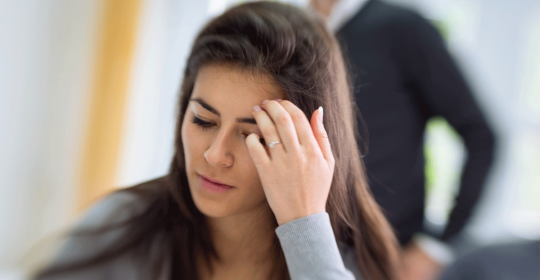
Stress Migraine
This article was originally published by Otesa Miles on Migraine.com
Although some people may use the term stress migraine, this is not a type of migraine recognized by the International Headache Society. The term stress migraine may actually be referring to a trigger, as many consider stress to be the most common migraine trigger. Stress in migraine sufferers is difficult to control, just as it is in people who don’t suffer from migraines.
Stress doesn’t have an internationally approved definition, but most people know what it is and have experienced it. There is no specific definition of stress because it is a very personal phenomenon. Different things cause stress in different people and each individual reacts in a unique way to stress. Stress is the body’s reaction to an event or situation. Canadian endocrinologist Hans Selye, who coined the word “stress” in 1936 and pioneered research in the field, called it “the non-specific response of the body to any demand for change.”
Ways stress can impact migraines
• A major stressful event, such as death or divorce, may cause someone’s first migraine attack
• Stress can trigger migraine attacks
• In some, stress makes a migraine attack worse
• Some migraine sufferers say that stress makes migraine attacks last longer
• Stress may cause more frequent migraine attacks
• Stress can cause a migraine after the stressful situation ends, which occurs after the sudden release of tension—sometimes called “weekend migraines”
A 2001 study found that stress provoked migraines in:
• 74 percent of people who suffered from migraines with aura
• 91 percent of people who suffered from both migraines with and without aura
• 76 percent of people who suffered from migraines without aura
Why does stress trigger migraines?
Although the jury is still out on a definite reason stress causes migraines, researchers have discovered several links between stress and migraines. One theory is that stress leads to the release of protein particles called peptides that makes blood vessels expand and become inflamed. This begins a series of events which cause nerve cells to become over-stimulated leading to the pain and other symptoms of a migraine. Researchers have also found altered levels of stress hormones in migraine sufferers, which may be responsible for triggering migraines.
A 1999 study of 250 people found that those with migraines had higher stress scores than those without migraines. Also, women with migraine were found to have higher stress scores than men with migraines. Stress scores were determined using the “Perceived Stress Questionnaire.” One small study of 13 migraine sufferers in 1990 found that the days right before a migraine attack were significantly more stressful than other days.
Ways to reduce stress:
• Getting adequate sleep
• Eating healthy, well-balanced meals
• Exercising regularly
• Learning stress-reducing techniques such as yoga or relaxation techniques such as biofeedback
• Using progressive muscle relaxation
• Cognitive behavioral therapy, to help patients recognize and deal with things that cause them stress, examine their thoughts and modify those that might contribute to stress or other issues such as depression or anxiety
Migraine Headache – German Neuroscience Center Dubai
Are you suffering from headaches? You are not alone! Headache is a widespread disease and one of the most common reasons to visit a neurologist. It occurs in different types and strengths and can impair the quality of living substantially. It is possible to do something against it.

